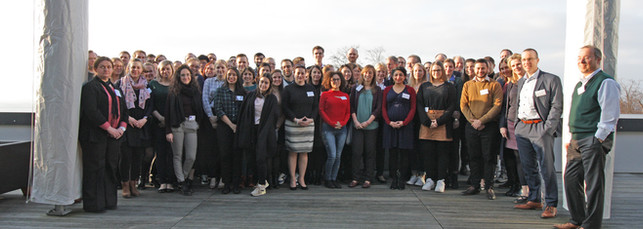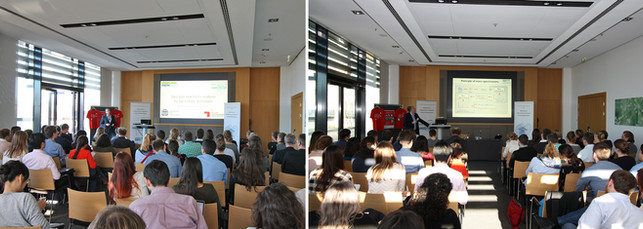21-23 September 2022

When I was a kid, my mother always advised me to eat less meat as it would adversely impact my kidney function. Being in childhood, I could not figure out how renal function develops. In life, you are always provided with chances to educate yourself and ‘the Joint Summer School of the ESAO, EUTox working group, COAT consortium, Strategy-CKD & SFB/TRR219 IRTG’ was precisely that platform for me.
Participants received three papers to prepare for active learning sessions - a unique segment of the summer school. Having read the papers, I learned how the gut microbiome generates uremic toxins. Intermediate, I wondered if and how the gut microbiome is altered in chronic kidney disease (CKD) patients compared to healthy individuals. During the extensive poster presentation session, the presentation of Hurbert Krukowski from KU Leuven on the CKD patient’s metagenome answered all my scientific questions. Such incidents clearly described how the summer school raised curiosity, and the scientific presentations of peer early research investigators satisfied such questions.
For my own Ph.D. project, I have been wondering whether carbamylation, a type of post-translational modification of proteins, is consequential or causal to pathophysiological changes. Prof. Dr. Sahir Kalim from MGH, Boston, USAgave an inspiring talk on the toxic effects of protein carbamylation. His talk was an excellent example of how scientific meetings allow the exchange of knowledge among all levels of scientists even before data publication.
After starting my PhD project two months ago, the summer school provided me with a sound basic and clinical background on cardiovascular complications in CKD patients and underlined the need for continuous research to help patients – a great motivation for my scientific interest. In addition, the opportunity to build a network with early career researchers all over Europe early on will support my career development.
Alamgir Alam, PhD student















Comments